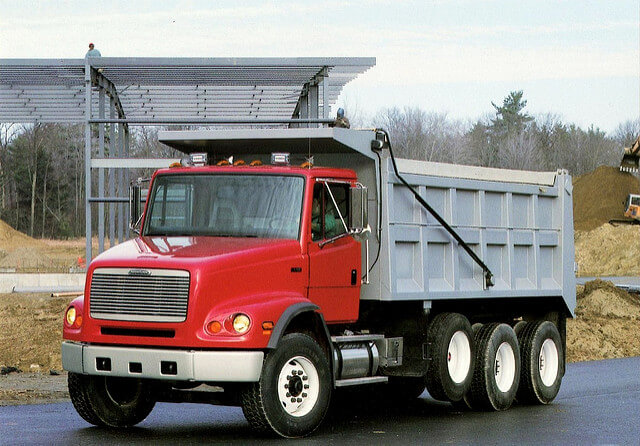Though trucking in general can be a dangerous business, dump truck drivers have even more exposure to hazards because of the nature of their vehicles. As a driver, safety should be one of your biggest concerns. Make sure to follow these dos and don’ts when it comes to working safely.
- Do make sure the ground is stable before raising the truck bed. The truck becomes less stable as the bed rises, and the greater the bed’s length, the greater the chances of it tipping over, especially if the ground is not level. Unload on compacted soil or gravel when possible.
- Do make sure the load’s center of gravity stays between the frame rails of the bed as it rises. Even low tire pressure on one side or small ground depressions can throw off this balance. Learning to evenly distribute the load throughout the bed is a good way to mitigate this hazard.
- Do ensure that the truck bed always has a liner to ensure the even, continuous flow of materials. This protects against an unbalanced load and is especially important when dealing with wet or frozen material that may stick to the bed.
- Do make sure the tractor and trailer are in as straight a line as possible. Jack-knifed alignments can cause unsafe situations for the truck and surrounding workers if the trailer does tip.
- Do keep up with daily maintenance of the truck. Checking tire pressure, inspecting the suspension systems/hydraulic lift cylinders and regularly lubricating pins and bushings will ensure smooth operation, as well as the safety of you and your co-workers.
- Do become trained in how to use hand signals or warning signs for two-person unloading operations.
- Do not overload the dump bed. This is an unsafe practice and can cause problems in unloading, especially if the material flows poorly out of the bed.
- Do not assume that a remote control device controlling the dump bed means it is OK to take safety risks. Drivers should still follow all safety guidelines even if a remote control makes it easier to maneuver the truck bed.
- Do not allow any vehicles or people in the area when unloading the truck. Clear an area if necessary to ensure the conditions are proper for dumping the bed.
- Do not drive with the bed raised. It is important to understand the dangers of this activity. For example, you could run into an overhead power line, which holds the possibility of electrocution.
- Do not work between the bed and the frame without blocking the dump bed. Fatalities have occurred when the bed unexpectedly lowers onto the unsuspecting person below.








